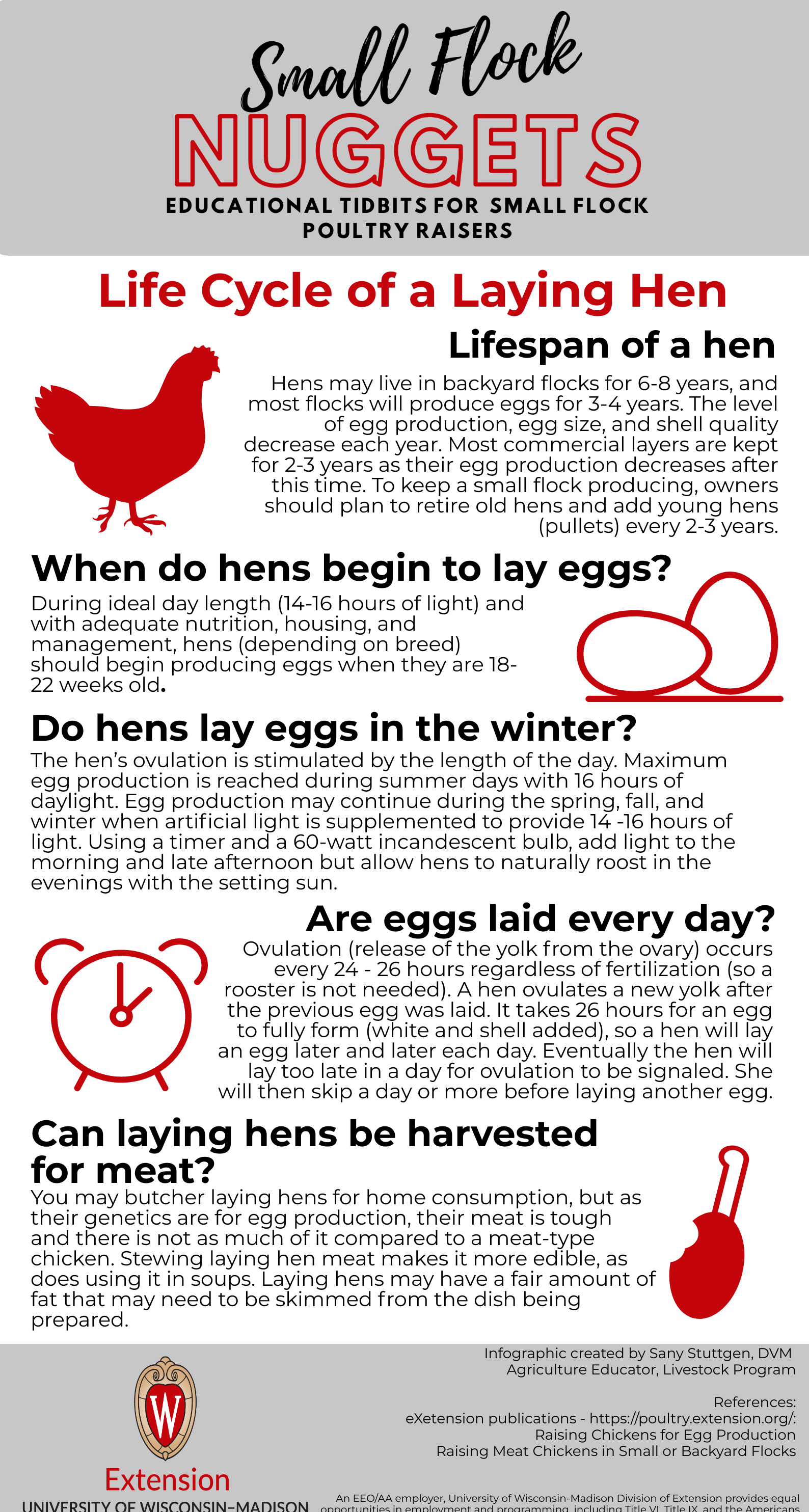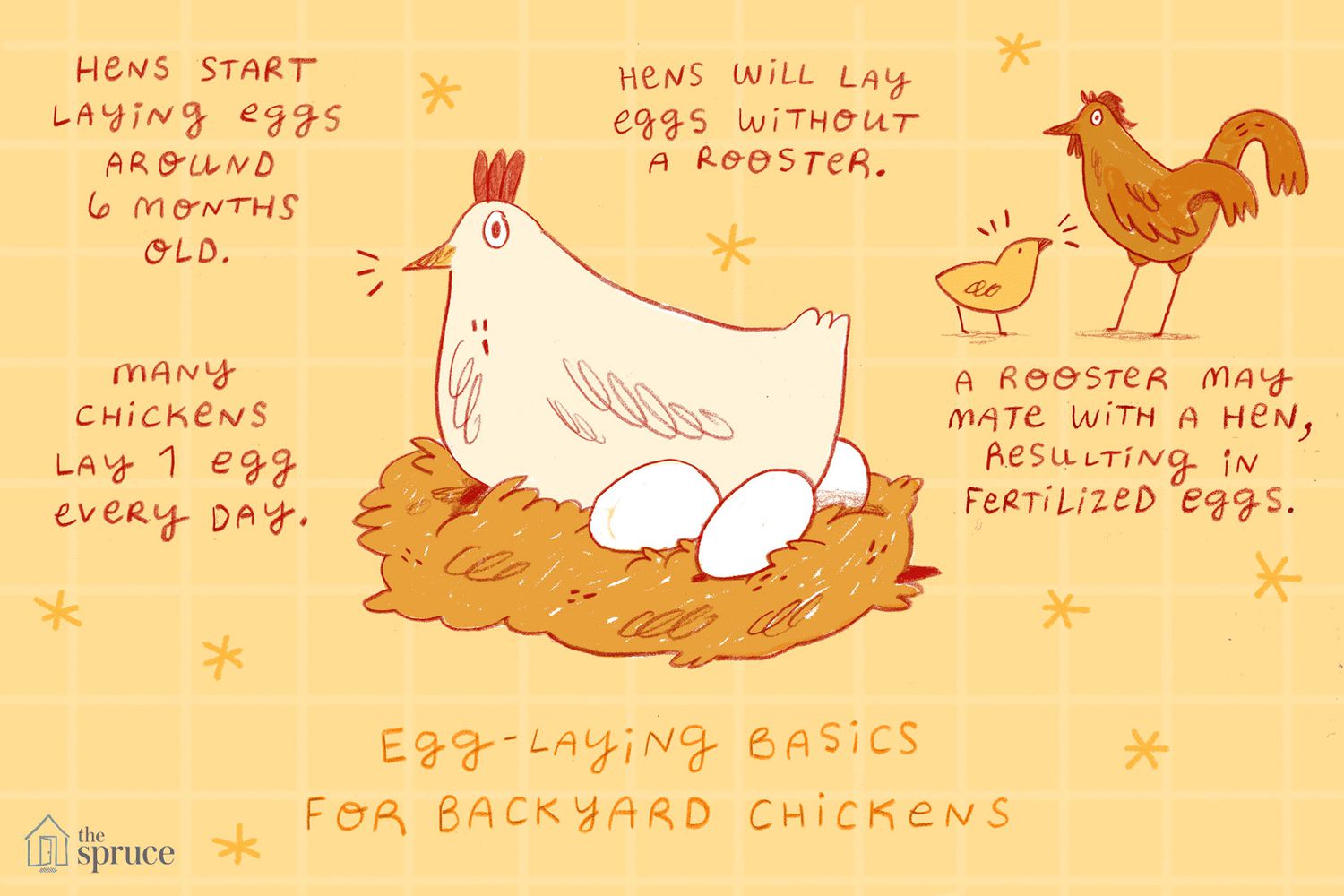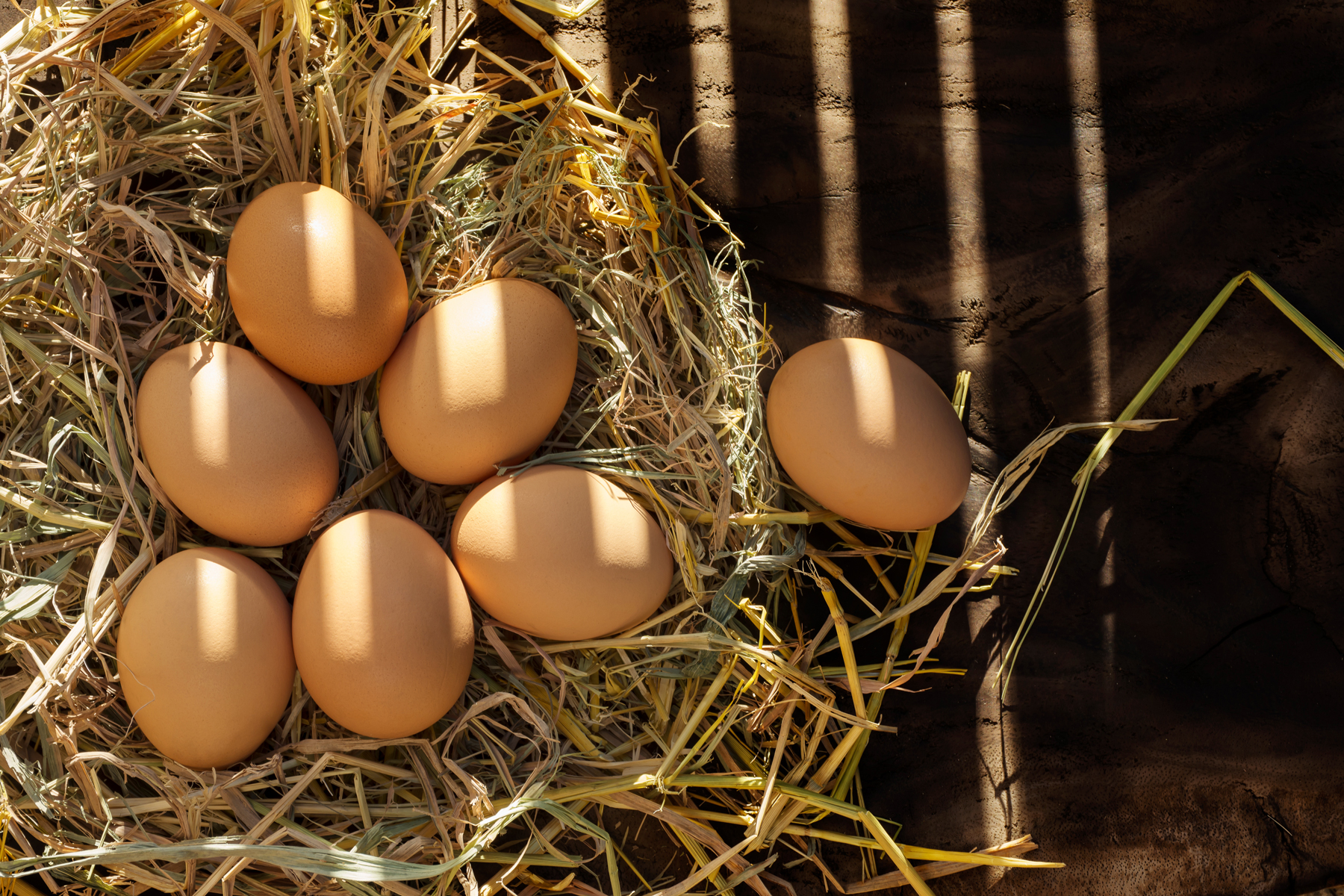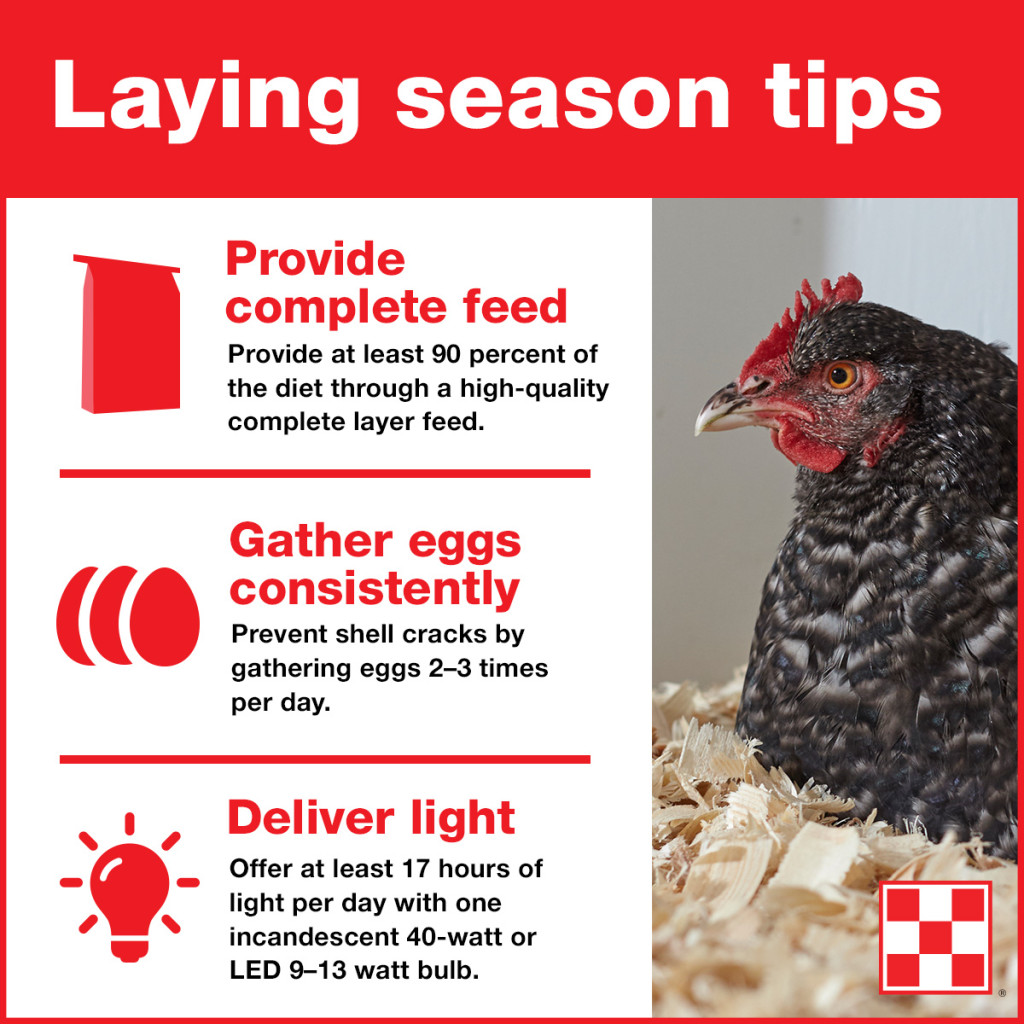Do hens lay eggs year round? It’s a common question asked by chicken owners who are interested in knowing what to expect from their feathered friends. Fortunately, this article will provide answers from a chicken husbandry expert! We’ll discuss the factors that influence a hen’s egg laying habits, as well as tips on how to keep your hens laying eggs year round. So if you’re curious about the egg-laying habits of your beloved chickens, keep reading!
The Chicken Egg Laying Cycle

Egg Laying and Breeding Cycles
Chickens typically lay eggs in a cycle that reflects the amount of daylight. During the spring and summer months, chickens will lay more eggs due to the increase in daylight. As the days become shorter in the fall and winter months, the amount of eggs laid will decrease.
Factors Affecting the Egg Laying Cycle
The number of eggs laid can also be affected by the breed of chicken and the age of the bird. Younger hens tend to lay more eggs than older birds, while certain breeds are more prolific egg layers than others. Additionally, external factors such as stress, improper nutrition, and disease can also impact the egg laying cycle.
Breeding and Egg Laying Breaks
In most cases, chickens will take a break from egg-laying during the winter months. During this time, the birds will rest and molt, which is when they lose their feathers and grow new ones. During this period, it’s important to provide your chickens with a nutritious diet to ensure they have all the necessary vitamins and minerals to maintain their health.
To answer the question of whether or not chickens lay eggs all year round, the answer is that it depends. While some hens may lay eggs year-round, others may take a break during the winter months. By understanding the chicken egg laying cycle and the factors that affect it, you can ensure that your chickens stay healthy and productive throughout the year.
Do Hens Lay Eggs All Year Round?

Yes, chickens are generally year-round egg layers and can lay eggs in all seasons. The amount of daylight is the main factor that affects egg production. Chickens need at least 14 hours of daylight to lay eggs and the number of eggs laid decreases when there is less than 14 hours of daylight. In winter, the days are shorter so the hens lay fewer eggs, but they will still lay eggs throughout the year.
In addition to the amount of daylight, nutrition, age and breed of the chickens can also influence how many eggs they lay. Chickens that are well-fed and in good health will lay more eggs than those that are not. Older chickens usually lay fewer eggs than younger ones. Some breeds of chickens are better egg layers than others, with some laying as many as 300 eggs per year.
In order to encourage your hens to lay eggs year round, it is important to provide them with a balanced diet and adequate indoor and outdoor space to keep them healthy and active. A balanced diet should include plenty of protein, calcium, phosphorus, and vitamins A and D, as these are all essential for egg production.
It is also important to ensure that your hens have enough space to roam around and forage for food. This helps to keep them active and encourages them to lay eggs. Additionally, providing your hens with a nesting box that is comfortable and secure will also help to keep them laying eggs year round.
Overall, hens can lay eggs all year round, although the number of eggs laid in wintertime will be lower than in other seasons. To help your hens lay eggs year round, it is important to provide them with a balanced diet, adequate indoor and outdoor space, and comfortable nesting boxes.
Nutritional Impact on Egg Laying

Diet
Chickens need the correct balance of protein, fat, carbohydrates, minerals, and vitamins to lay eggs throughout the year. This means offering them a balanced feed that is specifically designed for laying hens. Additionally, it is important to make sure that the feed is not contaminated with molds, bacteria, or other substances that can affect egg production.
Supplements
In some cases, chickens may need additional supplements to ensure they are receiving the right nutrition for year-round egg laying. This could include adding a vitamin supplement to their feed or providing them with fresh vegetables, fruits, and other nutrient-rich snacks.
Light Exposure
Finally, do chickens lay eggs all year round? The answer is yes, but they need adequate light exposure to do so. The amount of light needed varies depending on the breed, but generally speaking, hens should receive at least 12 hours of light per day. This can be achieved with natural sunlight or artificial lighting. Providing the right amount of light is essential for healthy egg production.
Light Exposure and Egg Laying

Do chickens lay eggs year round? Yes, depending on the amount of light exposure they receive. A chicken’s egg-laying cycle is heavily influenced by the amount of daylight they get each day. In the wild, chickens will lay eggs during the long summer days when there is plenty of light, and slow down or stop egg-laying during the winter when there is less light. In captivity, chickens can be tricked into laying eggs year-round by providing them with a consistent amount of artificial light. By keeping the light on for a longer period of time, the chickens will be tricked into thinking that it is summer all year round and they will continue to lay eggs.
Breeding Cycles and Egg Laying
| Breeding Cycles | Egg Laying |
|---|---|
| Chickens naturally go through breeding cycles that last for a few weeks. During this time, hens will lay fewer eggs. | Hens will normally lay eggs every 24-48 hours, with some breeds laying more often than others. The amount of eggs laid per day will depend on the breed, the age of the hen, the diet, and the amount of light the hen is exposed to. |
When hens are not in their breeding cycles, they will typically lay more eggs. During breeding cycles, hens may lay fewer eggs, or none at all. It is important to provide hens with proper nutrition, light and supplemental calcium during breeding cycles to help ensure that egg production does not decrease.
Some breeds of chickens, such as Rhode Island Reds and Jersey Giants, may lay eggs year-round, while other breeds may lay fewer eggs during the winter months. Providing supplemental lighting during the winter months may help boost egg production.
Frequently Asked Questions
How do I know if my hens are healthy enough to lay eggs year round?
Signs of a Healthy Hen:
- Energetic and active
- Bright feathers
- Good body weight
- Clean vent with no discoloration
- Clear eyes and no discharge
- Good appetite
- Lay eggs regularly
It is important to monitor your hens for any signs of ill health. If your hen is showing signs of ill health, then she may not be healthy enough to lay eggs year round. It is also important to provide your hens with a balanced and nutritious diet. This will ensure that they have the necessary nutrients to lay eggs year round. Additionally, make sure your hens have access to a clean, dry, and well-ventilated environment. Lastly, be sure to check your hens for parasites regularly, as this can also impact their health and ability to lay eggs year round.
What are the Best Environmental Conditions to Ensure Year Round Egg Production?
Optimal egg production requires providing hens with the right environmental conditions, including adequate space, comfortable temperatures, good air quality, and 12 hours of light per day. The nesting boxes and roosts should be clean and kept free of dirt, dust, or debris. Additionally, the coop should be well-ventilated, and free of excess moisture or ammonia. Proper nutrition and access to fresh, clean water is also necessary to ensure year round egg production.
Are There Certain Breeds of Chickens That Are More Likely to Lay Eggs Year Round?
Certain breeds of chickens, such as Leghorn and Plymouth Rock, are known to be more prolific egg layers and are more likely to lay eggs year round. Other breeds, such as Silkies, are known to lay fewer eggs, and may only lay eggs during certain times of the year. Breeds that lay eggs year round should be chosen for those who hope to have a steady supply of fresh eggs.
What should I feed my hens to ensure year round egg production?
- Nutrient-rich feed: Make sure your hens get a high-quality feed, rich in protein, vitamins, minerals, and other essential nutrients.
- Fresh water: Ensure that your hens have access to clean, fresh water at all times.
- Calcium: Provide your hens with a source of dietary calcium, such as oyster shells, to support healthy egg production.
- Grit: Offer your hens a source of grit, such as crushed granite or oyster shells, to aid in digestion.
- Green feed: Offer your hens fresh green feed such as clover or grass in addition to their regular feed.
- Variety: Provide your hens with variety in their diet to ensure they are getting all the nutrition they need for healthy egg production.
Are there any health risks associated with hens that lay eggs year round?
Hens that lay eggs year round may have a higher risk of developing calcium deficiencies and egg-related diseases, such as egg-yolk peritonitis. Additionally, hens that are forced to lay eggs year round may be more vulnerable to diseases, due to the stress associated with this type of egg production. To ensure the health of hens that lay eggs year round, it is important to provide them with a balanced diet and access to adequate calcium and other vitamins and minerals.
Conclusion
In conclusion, hens do lay eggs year round, but the number of eggs they lay will depend on the breed of chicken, the weather, and the hens’ age. To get the most out of your hens, provide them with a safe and healthy environment and feed them properly. If you have any questions or concerns about your hens’ egg production, seek advice from a chicken husbandry expert.
